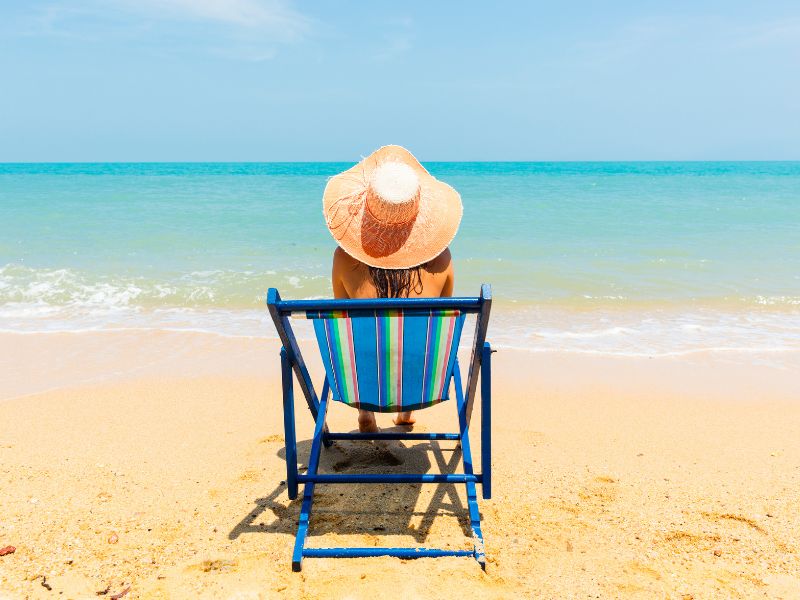Picture this: soft sand, crashing waves, warm sun, and…a sudden sneezing fit? Wait – what’s allergy season doing on your perfect beach day?
While beaches might feel like allergy-free zones, they aren’t always immune to pollen and skin irritants. If your relaxing coastal getaway is sometimes interrupted by itchy eyes, sniffles, or unexpected rashes, here’s what you need to know to keep allergies at bay.
Can You Really Have Allergies at the Beach?
Short answer: Yes!
The beach might seem like an allergy-free paradise, but wind-blown pollen, irritating sea life, and even sunscreen ingredients can trigger symptoms. Don’t worry, though – with a bit of preparation, allergies don’t have to ruin your fun in the sun.
Pollen at the Beach? Yep, It Happens!
Surprise! Beaches can have pollen, too. While those salty shore breezes keep pollen levels comparatively lower than other areas, pollen particles can drift hundreds of miles on a single summer breeze (and have even been found well off shore!)
Coastal grasses, palm trees, and seaside plants like ragweed also release pollen that can drift right into your relaxing beach chair. Windy conditions amplify pollen spread, so checking local pollen forecasts before heading to the shore can help keep surprises minimal.
Quick tip: Plan your beach outings during lower pollen counts, typically early morning or evening.
Common Beach Allergic Reactions and Rashes
Your skin might also protest your beach vacation. Some common reactions include:
- Swimmer’s Itch: Tiny parasites in shallow waters can cause itchy red bumps. Shower immediately after swimming to minimize exposure.
- Sun Allergy (Photosensitivity): Yep, even sunshine can cause allergic reactions for sensitive skin types. Protective clothing and hypoallergenic sunscreens can help.
- Contact Dermatitis: This itchy irritation can pop up from sunscreen, beach grasses, or even sand fleas. Stick with gentle skincare products and hypoallergenic sunscreens.
Can Ocean Water Cause Allergy Symptoms?
While rare, some folks react to marine life or algae blooms with rashes or hives. Saltwater itself isn’t typically an allergen, but contaminants or organisms living in it might provoke skin reactions. Rinsing off with fresh water right after swimming usually does the trick.
How to Avoid Sneezing and Scratching at the Beach
Avoid beach-day allergies with these practical tips:
- Check Pollen Counts: Apps and websites offer daily pollen forecasts to keep your sneezes to a minimum.
- Pack Allergy Relief Essentials: Carry antihistamines, allergy eye drops, and topical creams just in case.
- Rinse and Refresh: Rinse thoroughly after swimming to clear irritants from your skin.
- Choose Wisely: Opt for hypoallergenic skincare products and sunscreens that won’t trigger reactions.
- Sublingual Immunotherapy: Our sublingual allergy drops deliver proven relief from hundreds of environmental allergens with just a few drops under your tongue each day.
Allergy Relief Made Easy
Allergies might try to crash your beach party, but with a little prep, you can enjoy your day worry-free. Remember, being beach-ready also means being allergy-aware.
Ready for hassle-free allergy relief? America’s Best Care Plus offers convenient sublingual allergy drops and effective medications delivered straight to your door. Less sneezing, more sunshine—that’s a day at the beach!
Related Reading:
5 Unusual Seasonal Allergy Symptoms
National Picnic Month: Nutritious and Allergy-Safe Picnicking Tips

